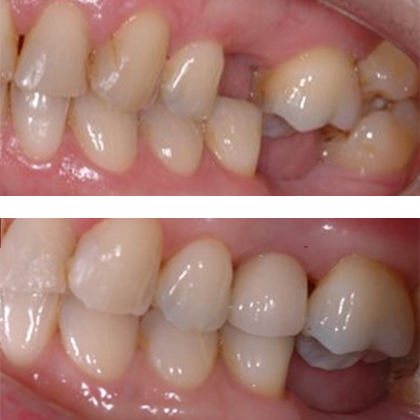WHAT ARE DENTAL IMPLANTS?
Permanent solution for tooth loss
Dental implants represent a common procedure of permanently replacing missing teeth without affecting neighboring teeth.
Implants are used as 'artificial tooth roots' to replace missing teeth without having to touch the surrounding teeth. They are placed in the bone and allowed to heal and then crowns or bridges are permanently fixed on the top. They can be used for any situation from a single tooth to a complete set of teeth.
Step 1. Evaluation

Step 2. Implant Placement

Step 3. Connection to the Implant

Step 4. Fixing the Artificial Teeth

Stage 5. Follow Up


-
Permanent solution
-
Improved chewing and speaking
-
Natural function and look
-
Improved facial appearance
-
Prevention of bone loss
-
No special care required
-
Very sturdy and secure
-
No diet restrictions
-
Can last up to 20 years
Implants (including crown)
from £2,250
Does it Hurt?
There may be soreness for a day to two, but usually not.
How long does it take?
Placing the implants takes about an hour, but after that they are relatively short appointments.
Does it last?
Yes, research shows that implants will last 15-20 years.
Will I be able to feel it when it is in place?
No.
Will it harm my other teeth?
No, they are not touched in any way.
How much will it cost?
At Smile & Wellbeing we offer a highly competitive and reasonable fee for our implants. Starting from £2250 we can offer you the quality, function, and appearance you require.
BOOK ONLINE
Reserve your place today!
Fill out the form below and we will contact you during our working hours.
powered by Advanced iFrame
CONTACT US
Get in touch today!
Fill out the form below and we will contact you during our working hours.





